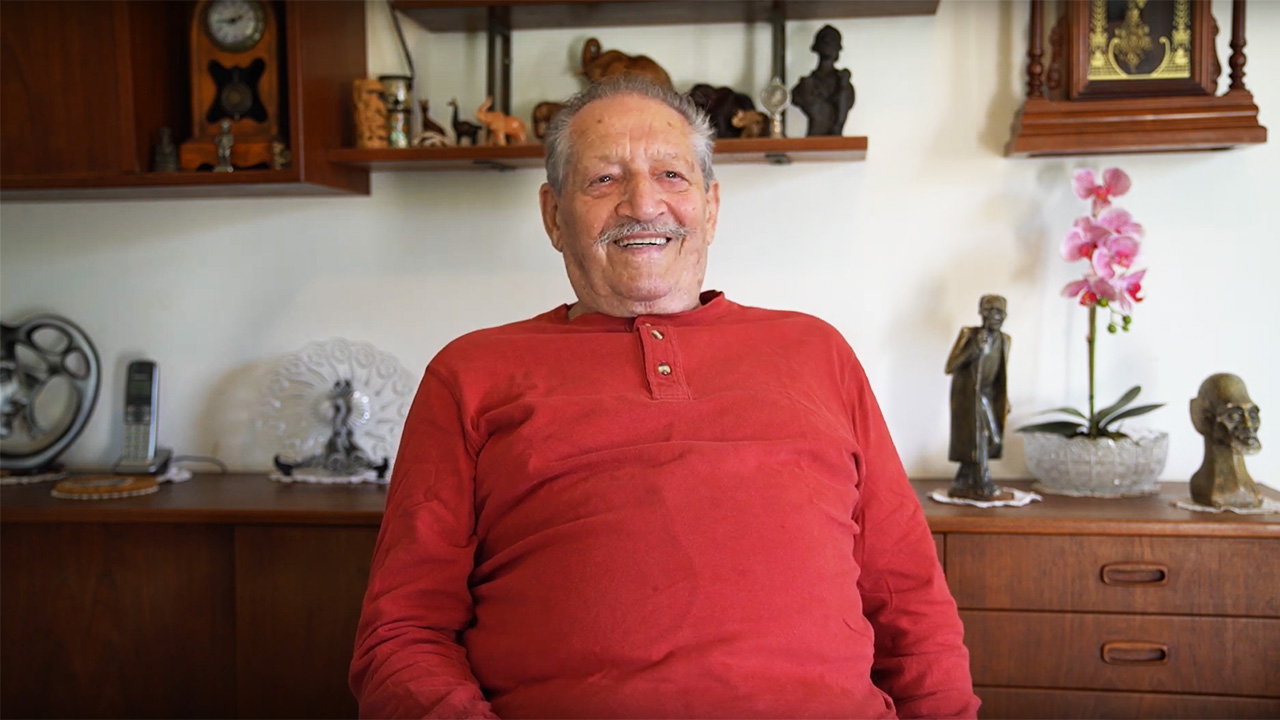
Interview Asher Engel
Asher Engel
In 1941, 3-year-old Asher Engel was deported with his family from Czernowitz, in what was then Romania, to Mogilev. In 1960, he emigrated to Israel. In his interview, he tells of his family, the deportation and his experiences in the camp, where he hid so as to not be separated from his parents, and how a dog saved his life. He explains how he worked through his experiences after the war and how he began to tell his story.
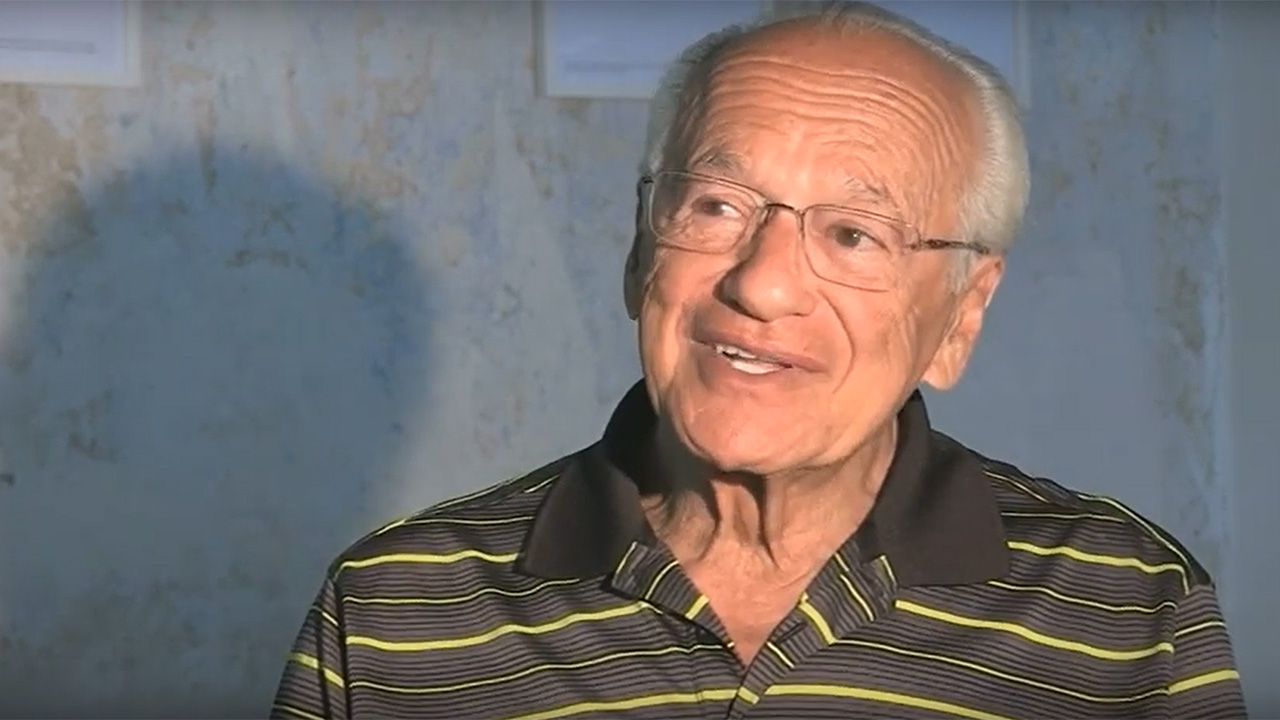
Interview Vern Gideon
Vern Gideon
In 1939, when he was still a child, Vern Gideon escaped with his parents, his sister, and his grandfather from Villingen in south-west Germany to New York. The Gideon family had operated a soap factory in Horb am Neckar for several generations. In his interview, he tells of the life of his family in Germany, the plans for emigration, the difficult start in the USA, the homesickness of his mother, and his experiences of antisemitism.
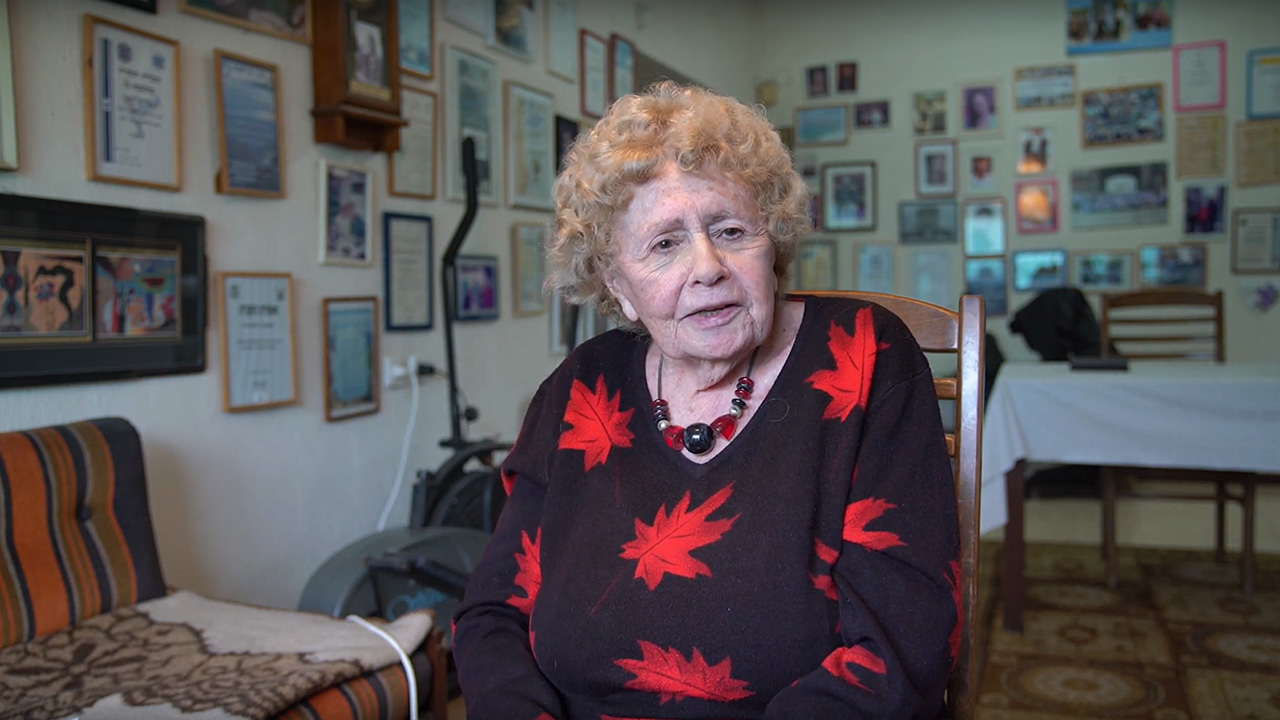
Interview Miriam Harel
Miriam Harel
Miriam Harel was born into a very devout family in Lodz in 1924. She was deported with her family, first to the Lodz Ghetto, later to Auschwitz and Bergen-Belsen. After the war, she went to Italy and continued on to Israel from there. In her interview, she tells of her childhood, the persecution, how she cared for orphaned children in the Ghetto and found the Zionist movement, she tells of solidarity, surviving, and her love of language, of Judaism and for her family.
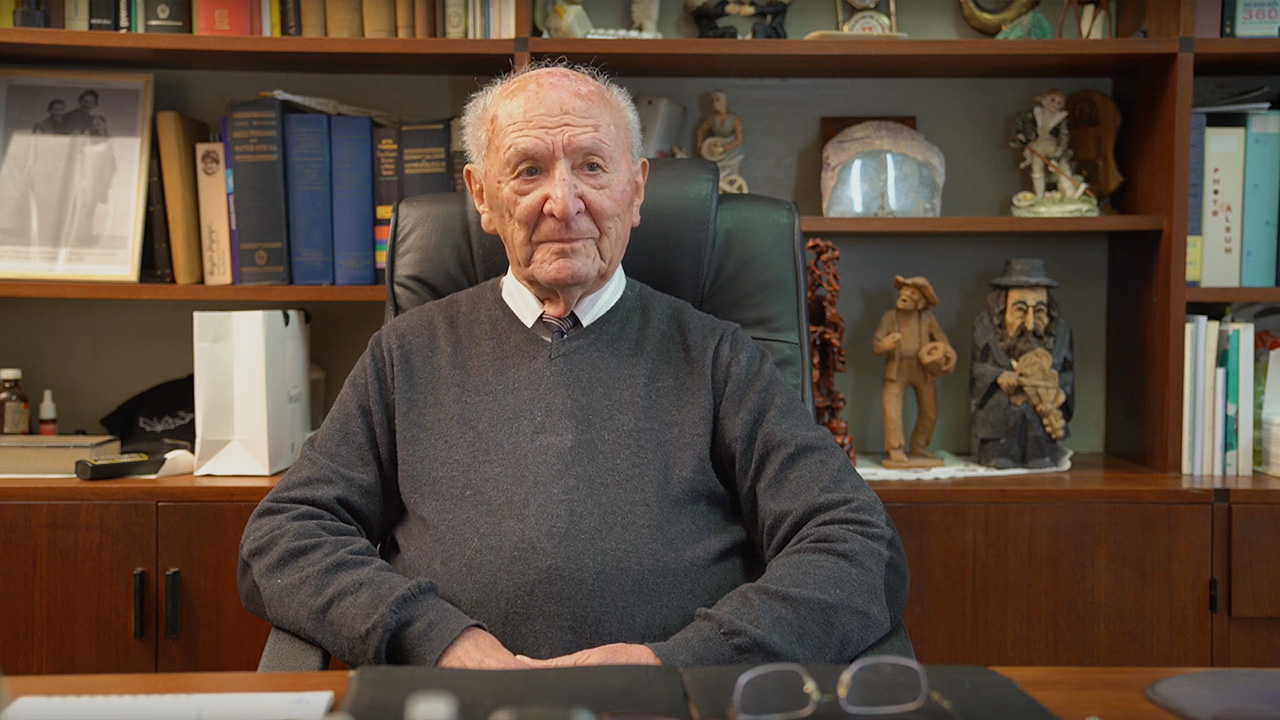
Interview Dr. Yitzhak Hirsch
Dr. Yitzhak Hirsch
Yitzhak Hirsch was born in Târgu Mureș, what was then Romania, in 1930. He was deported to Auschwitz alongside his parents and his sister. Before he was freed by American troops, he survived four camps and several so-called ‘death marches’. Today he lives in Israel. In his interview, he tells of his childhood, the persecution and deportation, from every-day life in Auschwitz, of the prisoners’ survival strategies and how he found his father again after the Shoah.
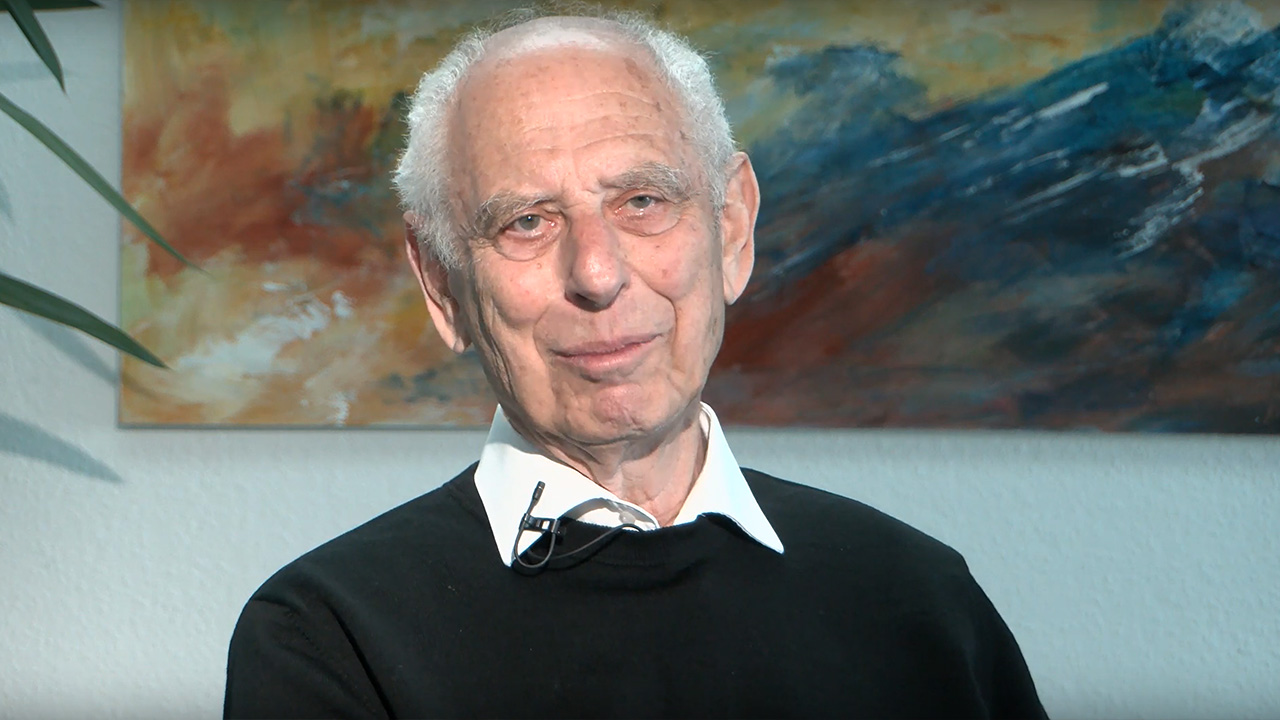
Interview Pavel Hoffmann
Pavel Hoffmann
Pavel Hoffmann was born in Prague in 1939 and deported to Theresienstadt at the age of four. One of the few surviving members of his family, he was saved by a Sondertransport [special transport] to Switzerland and grew up with his aunt in Slovakia. He arrived in Reutlingen in the south-west of Germany in 1969. In his interview, he talks about his childhood, his time in Theresienstadt and the transport to Switzerland, his research on the fates of his relatives, his advocacy against antisemitism and his relationship to Israel.
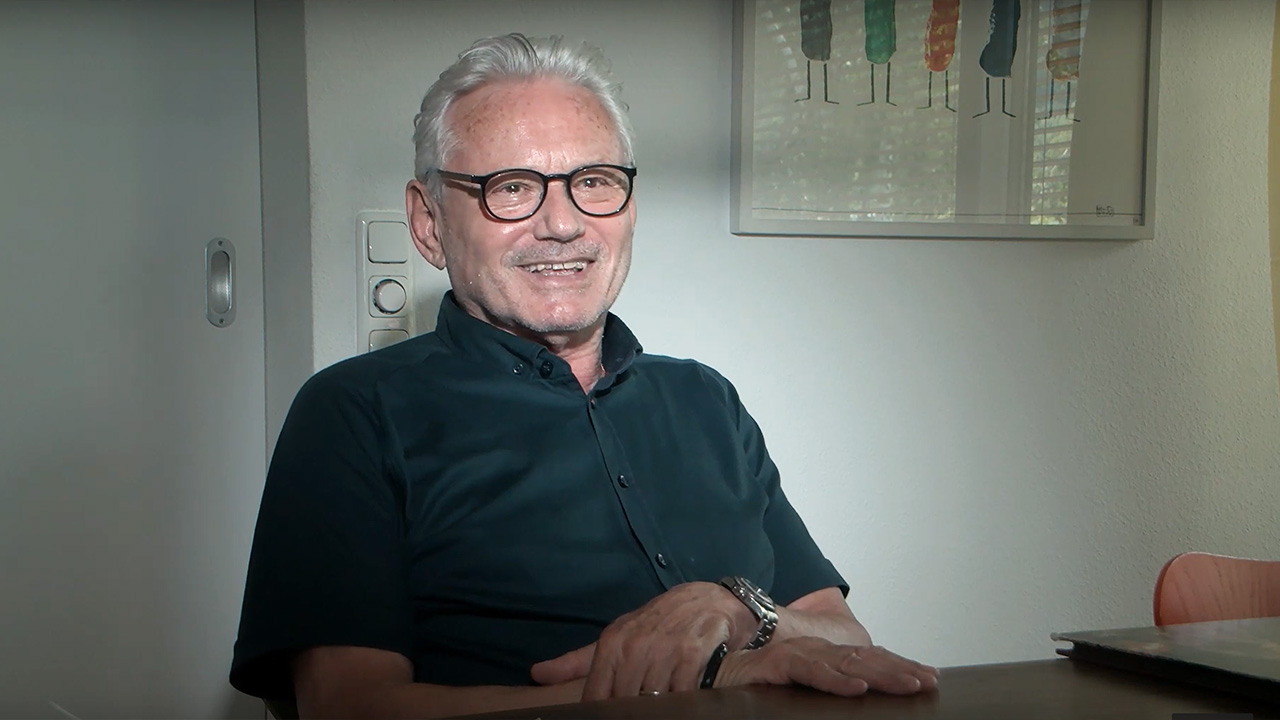
Interview Dr. Fredy Kahn
Dr. Fredy Kahn
The son of two concentration camp survivors, Fredy Kahn was born in 1947. He grew up in Baisingen in the south-west of Germany, where the family of his father had been settled for generations before they were driven out and murdered by the Nazis. Against the wish of his father to one day take over the cattle trade business, he studied medicine and still works in Nagold to this day. In his interview, Fredy Kahn speaks of his childhood with parents marked by the Shoah, his relationship to Judaism, and about antisemitism.
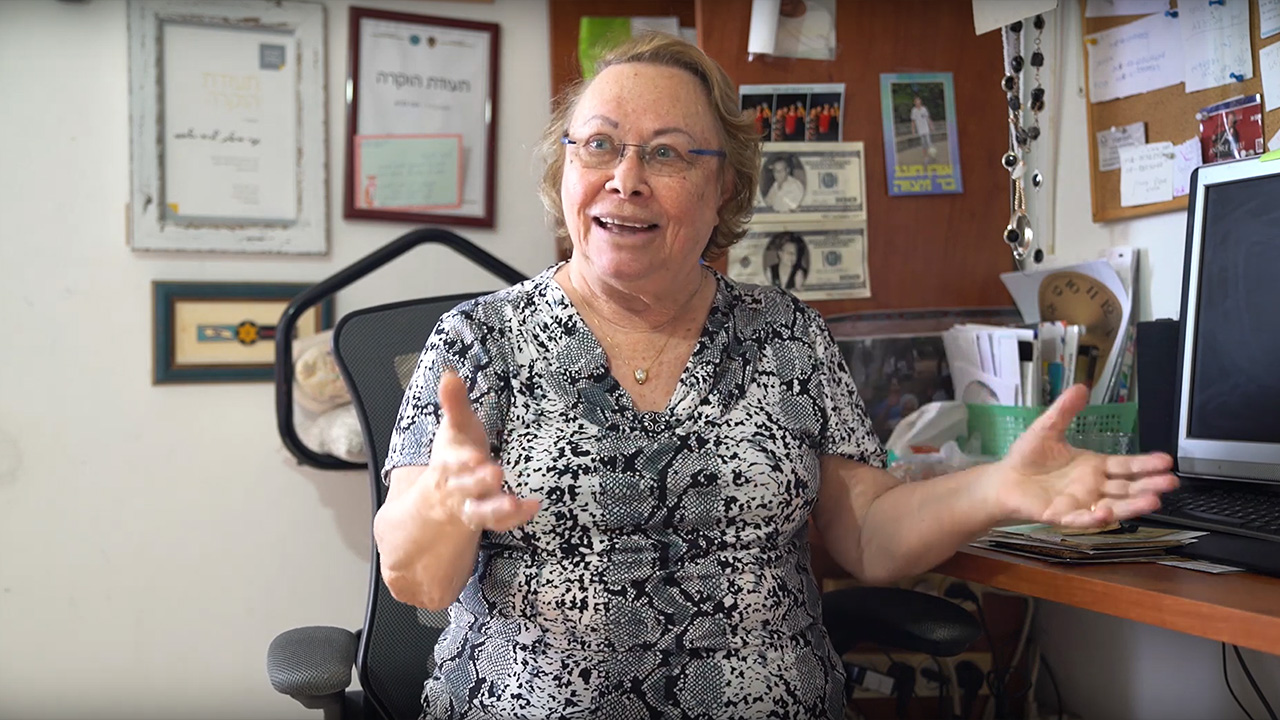
Interview Tammy Lavi
Tammy Lavi
During the war, Tammy Lavi grew up in a Christian orphanage in Lodz until 1949, when she was taken from there by a woman who then emigrated to Israel with her. Only late in life did she find out that this woman was not her biological mother. In her interview, she talks about her childhood in Israel with her strict mother marked by the Shoah, her time in the Kibbutz and the army, and how she found her family by researching her personal story as a so-called ‘convent child’.
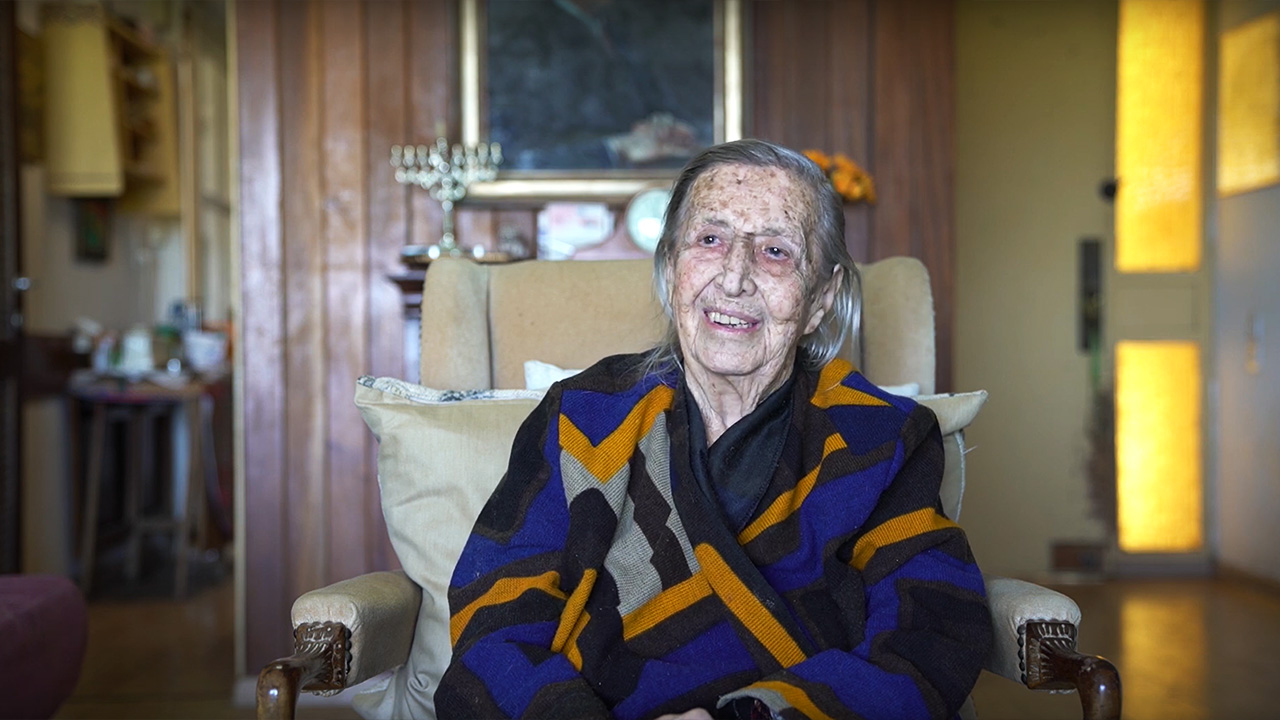
Interview Alda Mochly
Alda Mochly
Alda Mochly was born in the Italian port city Livorno in 1927. She describes her childhood in a wealthy family of attorneys. She enjoyed many liberties as a child and all her talents were generously supported. This utopia was shattered by the rise of Italian fascism. Her family was driven from their mansion and forced into hiding. Alda Mochly also describes how she met her husband, who volunteered for the British army in Palestine and came to Italy as a soldier. Her account is supplemented by her son David, who interprets his mother’s life’s story from his own perspective.
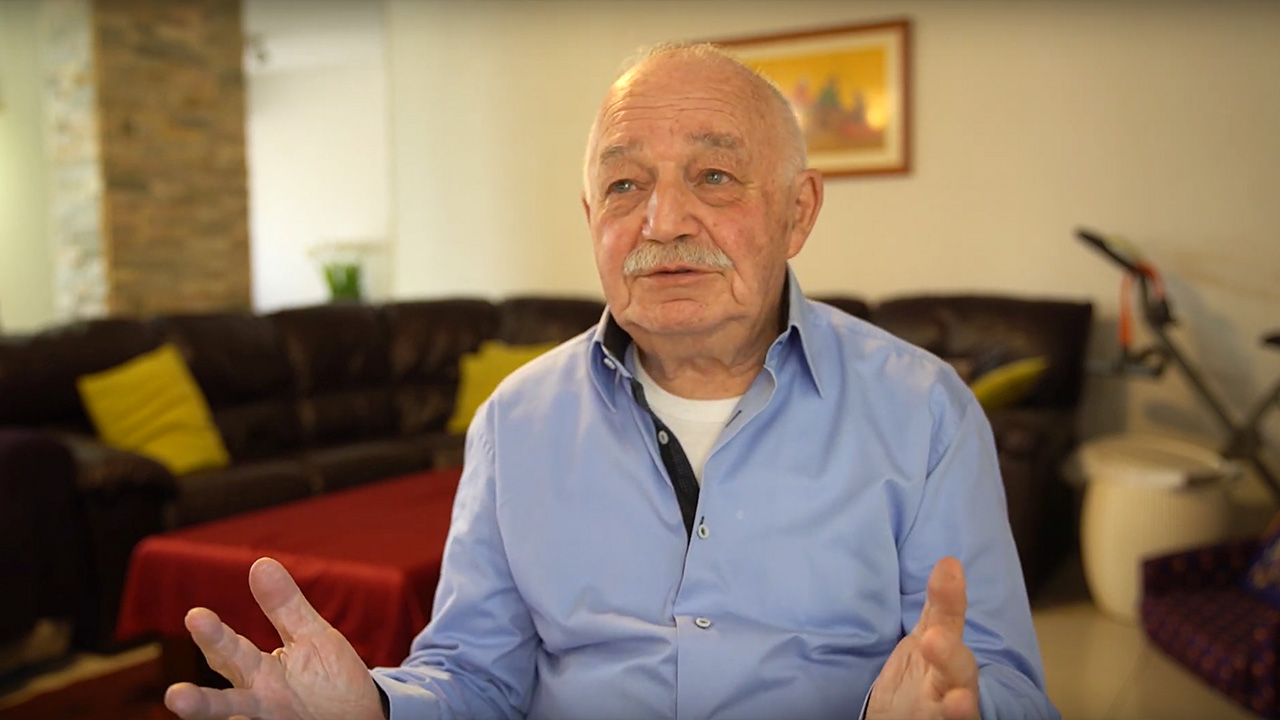
Interview Zvi Shalamovitch
Zvi Shalamovitch
Zvi Shalamovitch was born in occupied Belgium in 1942. Because of the threat of deportation, the family went into hiding and Zvi was adopted with the help of the Belgian underground. His mother was murdered in Auschwitz, his father survived traumatized. Zvi was raised as “a little prince” with a wealthy married couple. His father took Zvi back in to his new family and they emigrated to Bolivia. In 1971, Zvi emigrated to Israel with his Bolivian wife. In his interview, he speaks about his childhood, his two families, and about human rights.